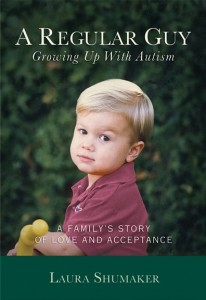LOSS OF INNOCENCE

He was about a year old and we were at Gymboree, a program where stir-crazy new mothers could connect while their babies got to tumble and play.
The class was held in the basement of a neighborhood Methodist church that smelled of applesauce cake and burnt coffee. I proudly carried Matthew into the class for the first session. I loved the way he sat on my hip, his arm hooked around mine, and how his legs and arms clung tighter when I leaned down to put him on the red mat with the other babies. Matthew was the cutest baby there.
I chatted with a woman who was dressed in perfect blue jeans and asked the usual questions—“Who is your pediatrician?” “How do you like your stroller?” She stopped mid-sentence and exclaimed, “Look at your little boy! He’s fascinated with the wheels on that board!” While the other babies were exploring balls and hula hoops or rolling down padded ramps, Matthew sat on his bottom and studied a 12×12-inch board with wheels on the base.
“Matthew!” I called playfully. He looked up briefly and continued to study the wheels.
“How cute!” the perky mother said. “He’ll probably be an engineer someday!”
The other babies gathered with their mothers for the highlight of the session—the unfurling of the parachute—but Matthew stayed with the board, leaning over to get a good look at how the wheels were working.
I picked him up and plopped him on the floor in the circle around the parachute. The moms lifted the multicolored silk parachute up in unison, filling it with air, and huddled underneath, babies in laps, while it floated down on top of us. But Matthew fussed and found his way out of the colorful fort in search of the board and its whirling wheels. All the mothers laughed, and I joined in uneasily.
He’s just a baby, I thought. This is just baby stuff. But he was the only baby who wouldn’t stay with the group.
When I recounted the day to Peter, I framed the board incident in a positive way. I told him about the attractive mother’s engineer comment, and that of course Matthew was the cutest baby there.
I remember that the week following that first Gymboree session, I felt mildly anxious about the next. Matthew’s penchant for playing with our yellow Mighty Mite vacuum cleaner, wrapping himself with the hose and inspecting the wheels, didn’t seem quite so endearing now.
At the next Gymboree session a week later, Matthew went right for the rolling board, and I didn’t fight it. I felt isolated as he turned the board over and spun the wheels, one by one, then turned it over again and rolled it around, bending to watch the wheels roll on the shiny wood floor. Meanwhile, the other mothers and babies played and chatted elsewhere in the room. There were a few sideways glances from the group, and my fantasies faded of finding one lifelong friend in the crowd to whom I could say at our kids’ high-school graduation: “And just think, we met when they were babies at Gymboree!”
I left a little early and took Matthew for a visit with my mom, who lived across the bay, about 30 minutes away. She had a special bond with her oldest daughter’s first child, and I needed a dose of her unconditional love. I told her about our experience with the class, the sideways glances and how I felt pushed out of the loop.
My mother hugged me and said, “They’re just jealous because Matthew is so adorable.” We laughed about my worries with Matthew’s wheel fascination and how it might jeopardize our playgroup eligibility.
“To heck with them!” my mother declared. She reminded me that Matthew was perfect and that I was hormonal.
“You’re not the playgroup type anyway!”
We sat outside and talked while Matthew played with the garden hose, the sun on our backs. Mom was so happy I had come by, and the warmth of her love and humor renewed my spirit. I smiled to myself and pushed my doubts about Matthew to the back of my mind, dismissing them as first-time mom jitters. But from that day on, I never looked at him the same way.
In the years that followed here were many more tests, a diagnosis of autism, a frantic search for a cure — and two more “typically developing” (that’s the pc term for “normal” sons. Balancing their care with Matthew’s extraordinary needs was hard! My book A REGULAR GUY: GROWING UP WITH AUTISM started out as a “ Sniff, sniff, look how hard it is to be the mother of a child with a disability” memoir, but ended up much more. In writing the book, it occurred to me how hard it is to be the person with the disability. It’s a great read even for the non-autism community.
I’ve been happily surprised by the popularity of A REGULAR GUY: GROWING UP WITH AUTISM with the middle school, high school and college set. Very cool.
Oh, and another thing! I was an English Major.
About The Author
Laura Shumaker is a nationally recognized autism advocate and author of A Regular Guy: Growing Up with Autism. Her essays have appeared in many places, including the New York Times, CNN, NPR, the San Francisco Chronicle and in the forthcoming book The Thinking Persons Guide to Autism. She writes the popular autism blog City Brights for the San Francisco Chronicle, which was recently named one of the best autism blogs by Babble.com. She is busy writing her second book. Laura and her husband Peter are the proud parents of three terrific sons, and live in Lafayette, CA. Their oldest son Matthew has autism.



We have friends with two young sons adopted from Russia who both have autism–what a perfect book for them! Thanks so much!